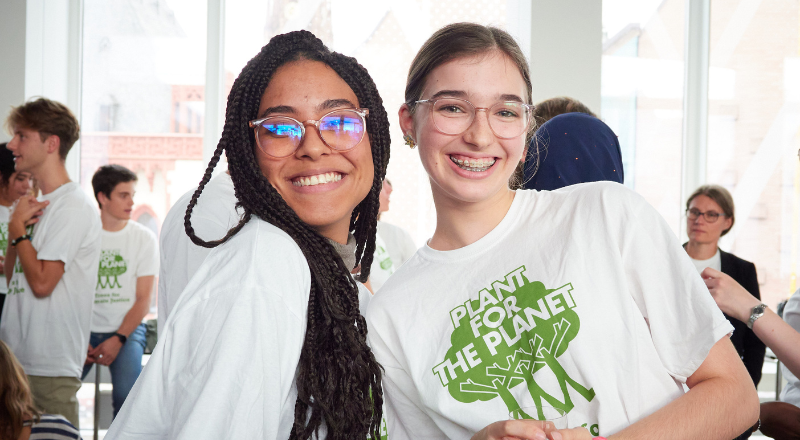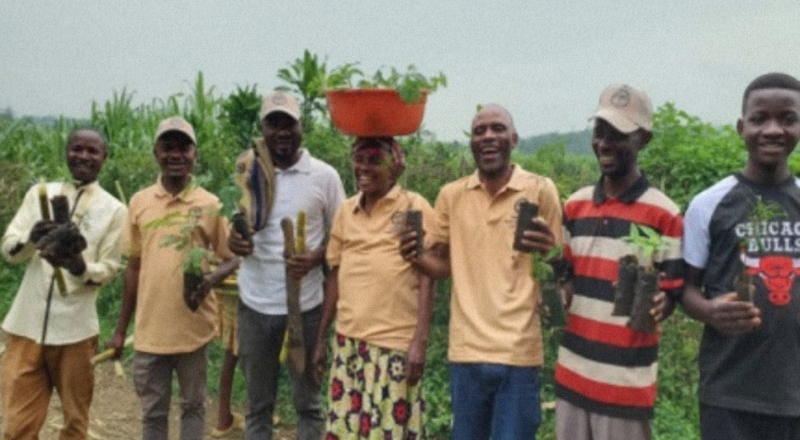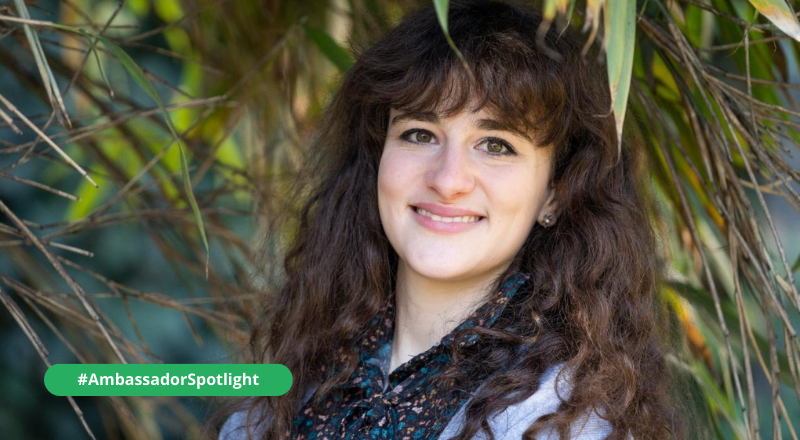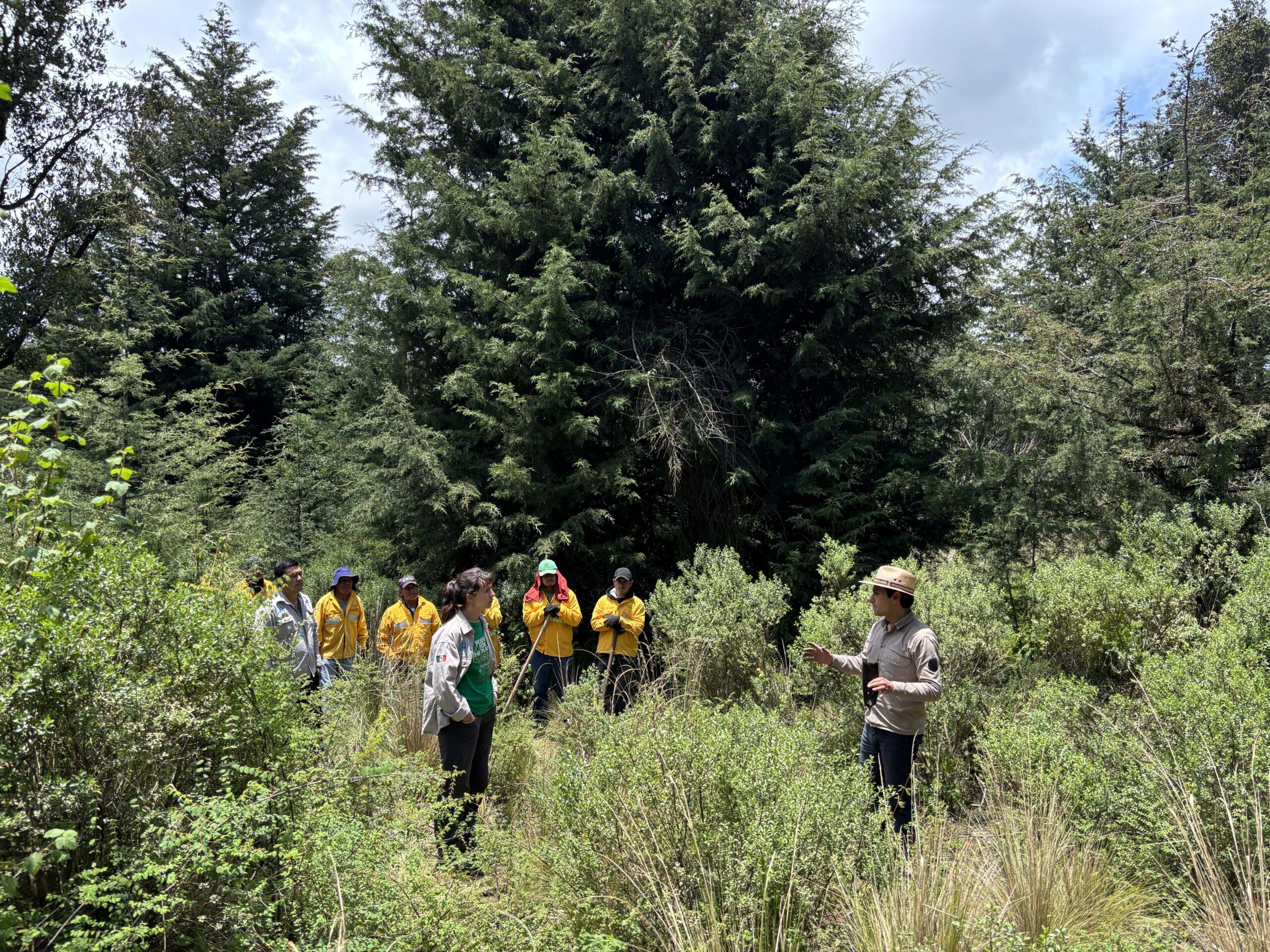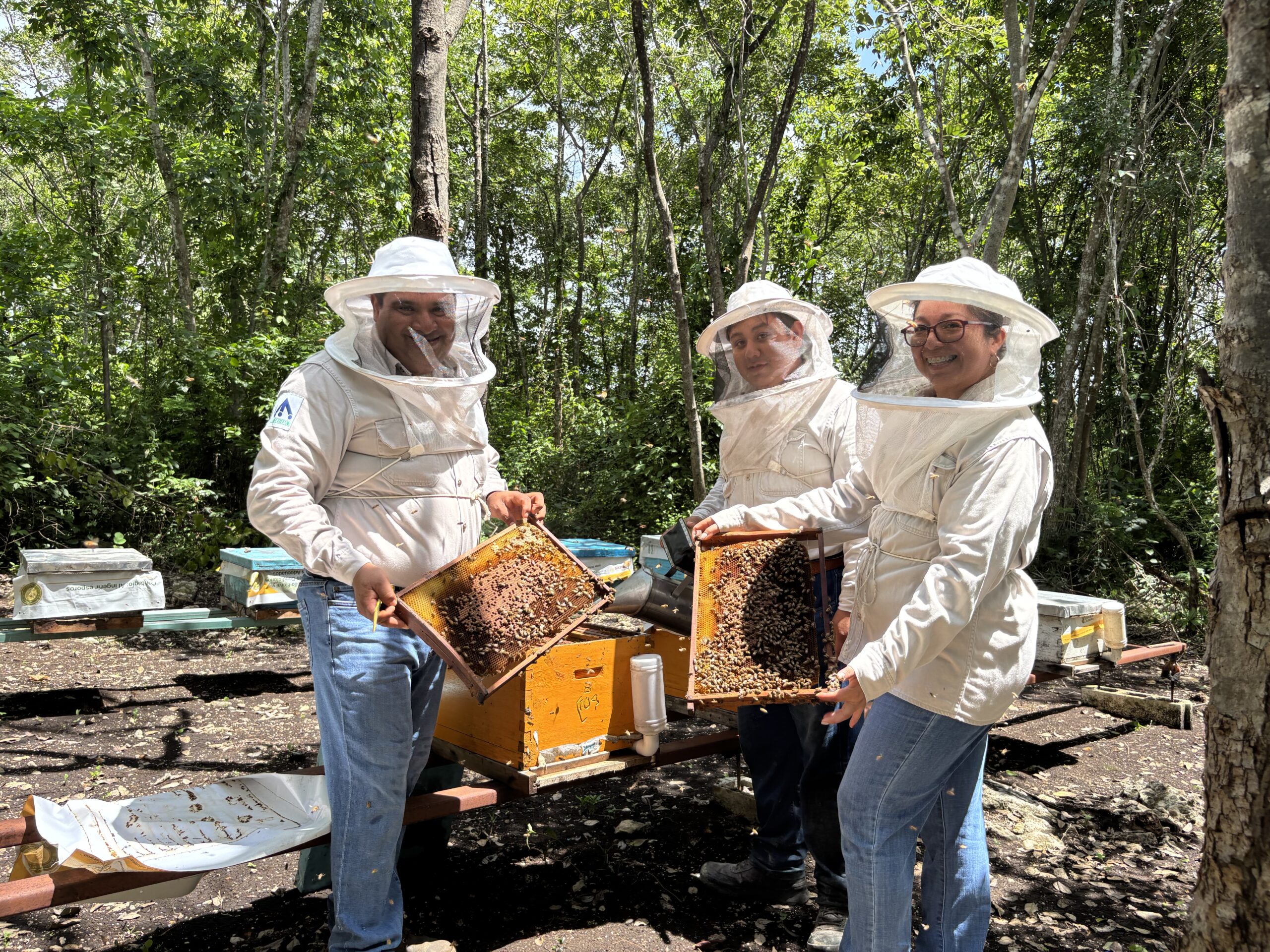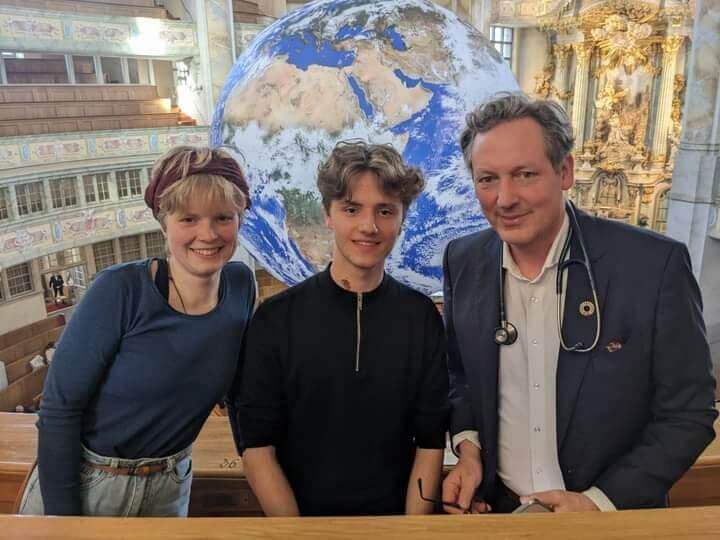
On the occasion of this year’s World Water Day, Simon, our long-time ambassador for climate justice, was invited to the exhibition and talk session “Our Water, Our Life” at the Frauenkirche in Dresden on March 22. There, he discussed the connections between water and the climate crisis with physician and TV host Dr. Eckart von Hirschhausen, state environment minister Wolfram Günther and other participants. Here is his report on it:
When I first walked into the historically well-known Frauenkirche in Dresden, Germany on March 9 th 2023, it was overwhelming. It was not only an exhibition of our great, big, blue planet “Gaia” – it was a warning sign as well. “Achtung zerbrechlich” was what they called it, which means “Be careful – its fragile”. How painfully accurate.
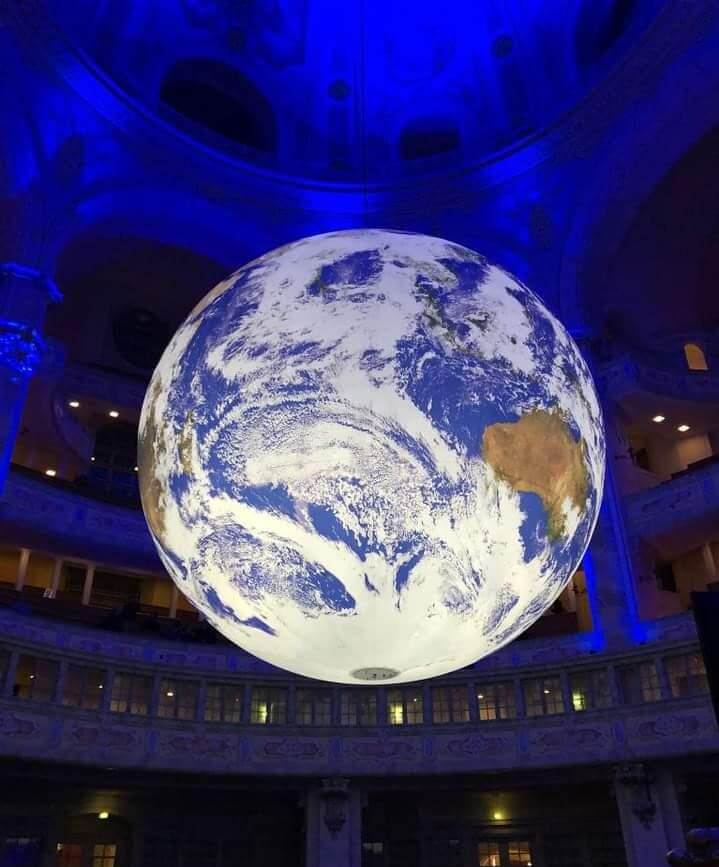
On World Water Day, March 22nd , I was able to discuss connections of water and the climate crisis with doctor and TV moderator Dr. Eckart von Hirschhausen, our regional environmental minister Wolfram Günther and others. Overall, we agreed on the need to do more to protect the climate, not only, but also to protect our water – and the other way round.
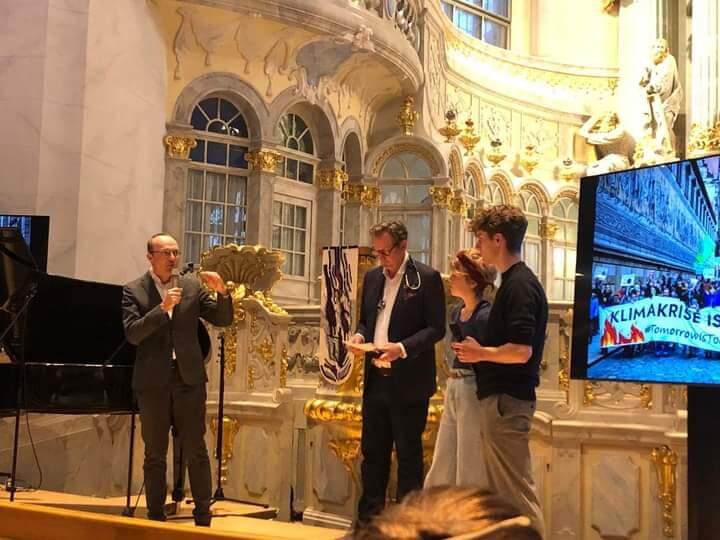
What I didn’t know before though, was how much those two are interlinked. No, numbers are usually not great for trying to explain the crisis we are in. But – when I saw this number for the first time, I shrugged and couldn’t believe it: There are about 8400 coal power plants in the world, about 130 of them in Germany, many more in the US. Of course, a lot of CO2 is emitted by burning coal, but the fact that one coal power plant needs 1.5 billion cubic meters water a year is already insane. If you’re concerned by now, get this. With all the water used for coal power plants in the world, we could provide up to one billion people with clean drinking water.
In my region, Saxony and the Eastern parts of Germany, I argued, we experienced the worst wildfires on record last year – we could use the water currently used for coal for preserving nature, for trees or for stabilizing our groundwater. But no, we keep burning fossil fuels, because we stuck in a system. We stuck in a system that has erased not only Lützerath but innumerable numbers of villages from the map in Germany and around the world. We stuck in a system that has caused and will continue to cause so much pain in the Global South. From Pakistan to Nigeria, from Uganda to Colombia, but also from Germany to the US, no country can shield itself from the consequences.
Saving our water means saving our climate. Back when I was little, my grandpa would often ask, what is the most important thing in life? “It’s water, Simon. And what’s the second most important thing?” I would joke around, guessing “is it sparkling water?” and again, he would tell me, “No Simon, it’s the air we breathe.” While I couldn’t make much out of it back then, as I was too young, now I do understand what he was saying: Without clean water and clean air, we are nothing. I feel like some world leaders actually believe in the sparkling water theory of my-five-year-old-self, the way they treat our climate and our water. Let’s make sure we activists and ambassadors are the grandpa to those world leaders!
Simon H., Climate Justice Ambassador
